News Blog
Latest News From Our Volunteers in Nepal
VOLUNTEER COMMUNITY CARE CLINICS IN NEPAL
Nepal remains one of the poorest countries in the world and has been plagued with political unrest and military conflict for the past decade. In 2015, a pair of major earthquakes devastated this small and fragile country.
Since 2008, the Acupuncture Relief Project has provided over 300,000 treatments to patients living in rural villages outside of Kathmandu Nepal. Our efforts include the treatment of patients living without access to modern medical care as well as people suffering from extreme poverty, substance abuse and social disfranchisement.
Common conditions include musculoskeletal pain, digestive pain, hypertension, diabetes, stroke rehabilitation, uterine prolapse, asthma, and recovery from tuberculosis treatment, typhoid fever, and surgery.
FEATURED CASE STUDIES
Rheumatoid Arthritis +

35-year-old female presents with multiple bilateral joint pain beginning 18 months previously and had received a diagnosis of…
Autism Spectrum Disorder +

20-year-old male patient presents with decreased mental capacity, which his mother states has been present since birth. He…
Spinal Trauma Sequelae with Osteoarthritis of Right Knee +
60-year-old female presents with spinal trauma sequela consisting of constant mid- to high grade pain and restricted flexion…
Chronic Vomiting +

80-year-old male presents with vomiting 20 minutes after each meal for 2 years. At the time of initial…
COMPASSION CONNECT : DOCUMENTARY SERIES

Episode 1
Rural Primary Care
In the aftermath of the 2015 Gorkha Earthquake, this episode explores the challenges of providing basic medical access for people living in rural areas.

Episode 2
Integrated Medicine
Acupuncture Relief Project tackles complicated medical cases through accurate assessment and the cooperation of both governmental and non-governmental agencies.

Episode 3
Working With The Government
Cooperation with the local government yields a unique opportunities to establish a new integrated medicine outpost in Bajra Barahi, Makawanpur, Nepal.

Episode 4
Case Management
Complicated medical cases require extraordinary effort. This episode follows 4-year-old Sushmita in her battle with tuberculosis.

Episode 5
Sober Recovery
Drug and alcohol abuse is a constant issue in both rural and urban areas of Nepal. Local customs and few treatment facilities prove difficult obstacles.

Episode 6
The Interpreters
Interpreters help make a critical connection between patients and practitioners. This episode explores the people that make our medicine possible and what it takes to do the job.

Episode 7
Future Doctors of Nepal
This episode looks at the people and the process of creating a new generation of Nepali rural health providers.

Compassion Connects
2012 Pilot Episode
In this 2011, documentary, Film-maker Tristan Stoch successfully illustrates many of the complexities of providing primary medical care in a third world environment.
From Our Blog
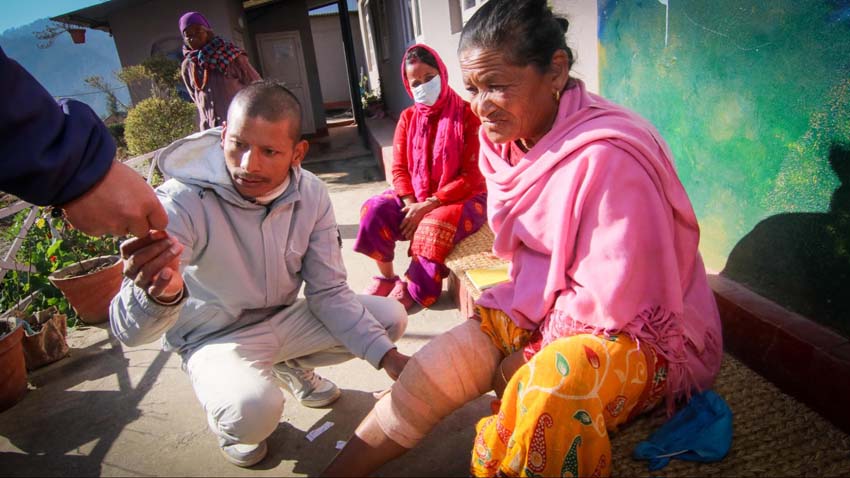
- Details
- By Andrew Schlabach
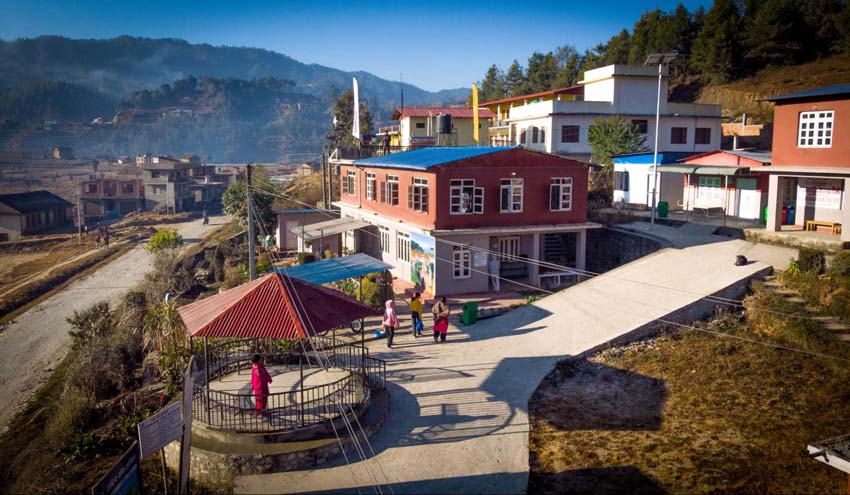
Our patient sits on a mat that is hand-woven with rice stalks, separating her from the cold stone floor. It’s early and our clinic hasn’t opened yet but this woman’s family called us to come have a look at her. It’s brisk and my fingertips sting and yet the morning sun is doing its best to cut through the frost. The house is made of concrete and clay bricks. It’s unpainted and is adorned with a simple corrugated metal roof. By the looks of it, 8-10 family members live here and they are all gathered around the small outdoor courtyard where the family does its daily chores. A couple of goats, staked in a pen, happily munching on some dried grasses are apparently oblivious to the small crowd of people. Chakkhu Maya Gopali, our patient, appears to be in her seventies. She is barefoot but dressed in a winter-weight kurta made of a bright red, black, and yellow fabric. Around her head and shoulders, she is wrapped in a thick wool shawl. Even before she says “jhumjhum”, meaning tingling, I can see by the way she is sitting that she is having a stroke. I’ve seen this same scene many times.
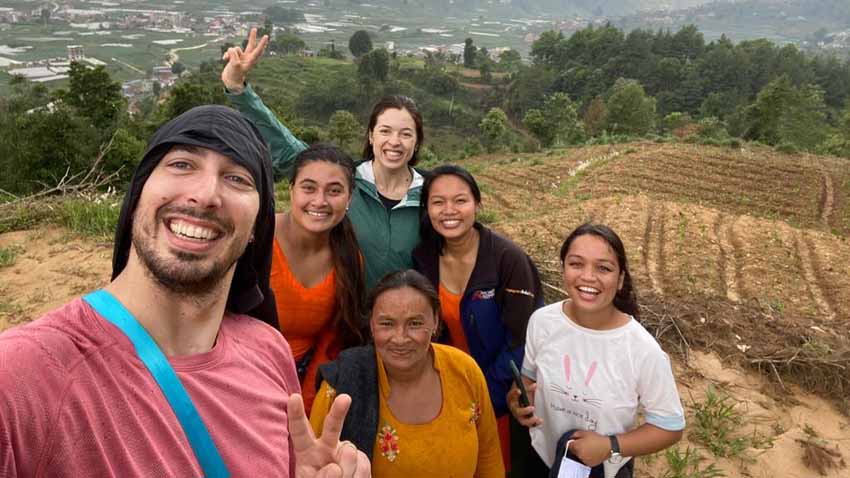
- Details
- By Agni Larsen
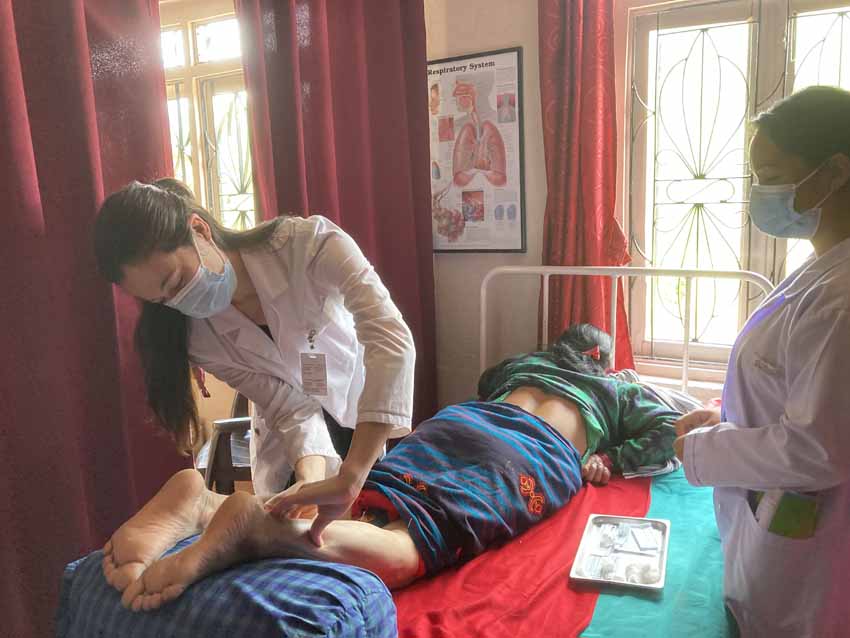
The morning sun glitters through the windows and my rhododendron plant stretches its leaves up to reach the light. I put on the kettle and sit down to eat my oatmeal with banana and soymilk, a breakfast poles apart compared to the roti with potato and chickpea curry I'd become accustomed to in Nepal. My city here in Victoria, Canada is famous for its rhododendrons, but the 100-year old plants look like babies in comparison to the rhododendron forests I have just witnessed while trekking through the Annapurna region; truth be told the plants are so bountiful that the local Nepalese verily use them for firewood to supply their wood-burning stoves.
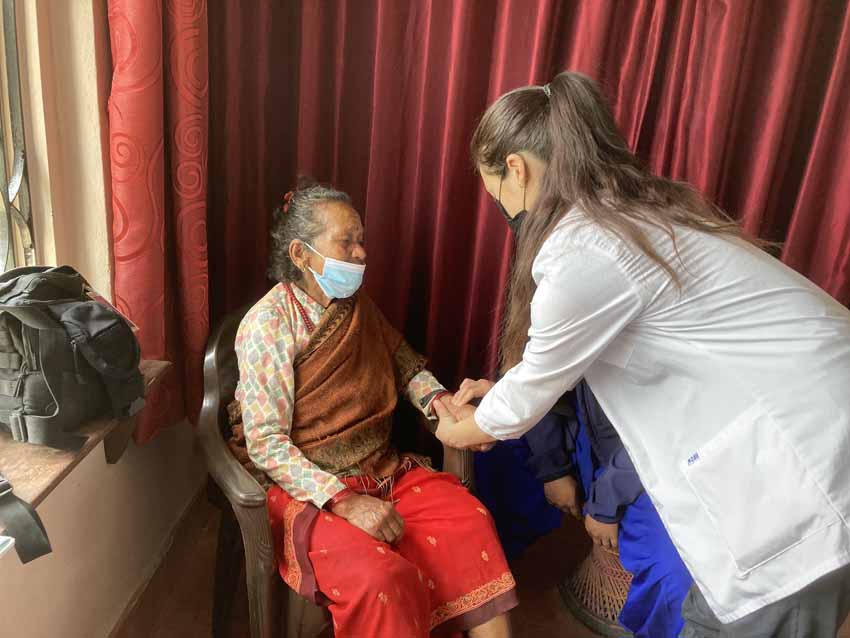
I ended my volunteering experience in the village of Bajrabarahi, Nepal with the Acupuncture Relief Project only four weeks ago now, yet the atmosphere, pace and the patients' faces are still etched in my memory. I have been reflecting on my time in Bajra since returning to Canada and the difference in practitioner-patient dynamics compared to what I typically encounter here in the West. I was fortunate to travel to Nepal and volunteer alongside my husband Gavin, who is also a Registered Acupuncturist and Traditional Chinese Medicine Practitioner. It was his first visit to Nepal and sharing the work-day with him and the exceptional Nepali practitioners Satyamohan Dangol and Sushila Gurung, intern Sanita Gopali and interpreters and clinic staff Amrita Gopali and Sushila Waiba, was truly a dream-team manifest. Returning to Nepal, for me, after eleven years away from a country where I spent four years of my creative years from age twenty-four to twenty-seven immersed in a BA program in Tibetan Buddhism at Kathmandu University was strangely familiar, yet this time entirely new.
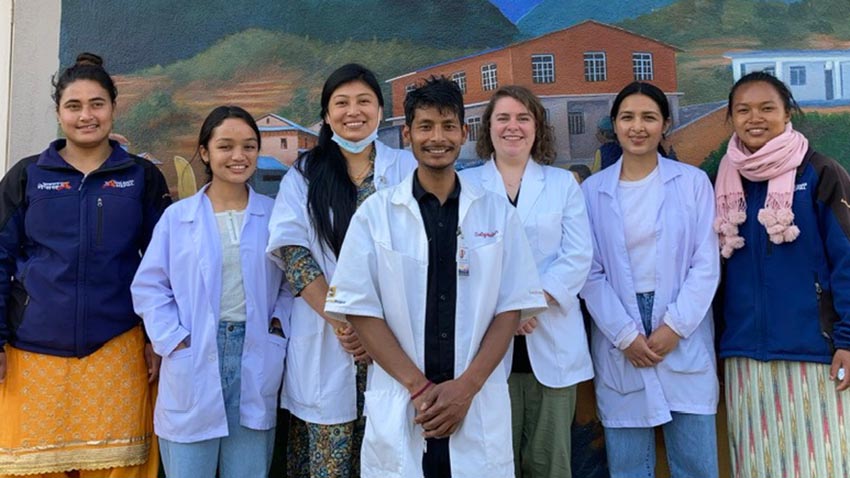
- Details
- By Michelle May
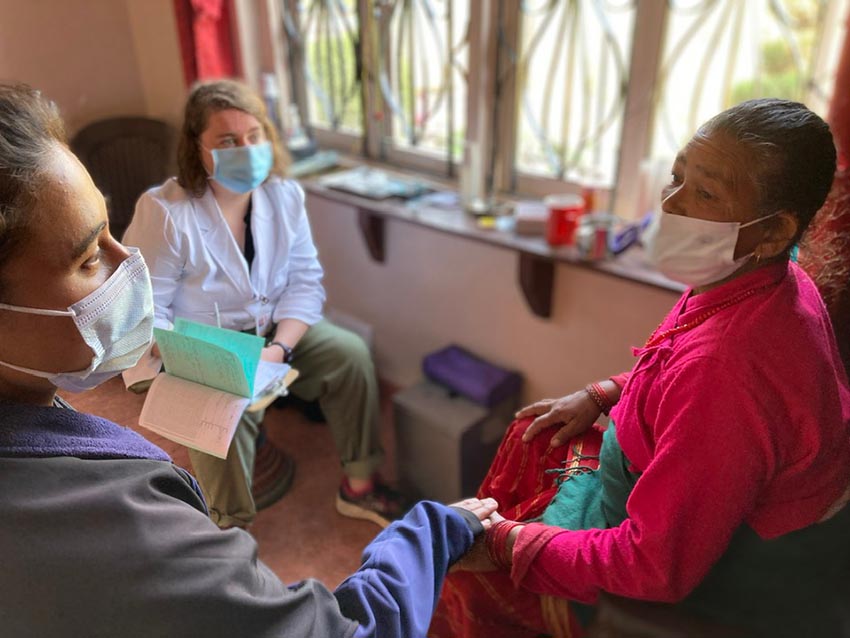
When I arrived in Nepal I was an anxious graduate student fresh out of acupuncture school during the Covid-19 pandemic. Having spent two years practicing medicine over zoom, I was nervous and doubtful about my skills as an acupuncturist. From the moment I arrived, everyone greeted and welcomed me with open arms. Satyamohan, Sushila, and the interpreters made me feel right at home and a part of every conversion. After just a few days with my new ARP family, all my worries melted away and I quickly found my new routine. The clinic is cleverly designed and well stocked, everything I could have needed to treat patients was provided and I was learning at a light years pace. The integration of the lifestyle clinic and neighboring health post is the perfect blend of Eastern and Western medicine. Together they are able to provide the patients with excellent primary care that would otherwise be difficult to obtain. One of the greatest advantages of working with the ARP was the ability to see a patient for 20-30+ visits. Seeing improvement with each treatment and trying different modalities was invaluable and rewarding. During my stay I’ve been able to regulate high blood pressure/sugars, reduce or eliminate complex pain syndromes, and support tremor/stroke rehab just with acupuncture. It blows my mind what few needles and Traditional Chinese Medicine can do.
Our Mission
Acupuncture Relief Project, Inc. is a volunteer-based, 501(c)3 non-profit organization (Tax ID: 26-3335265). Our mission is to provide free medical support to those affected by poverty, conflict or disaster while offering an educationally meaningful experience to influence the professional development and personal growth of compassionate medical practitioners.
